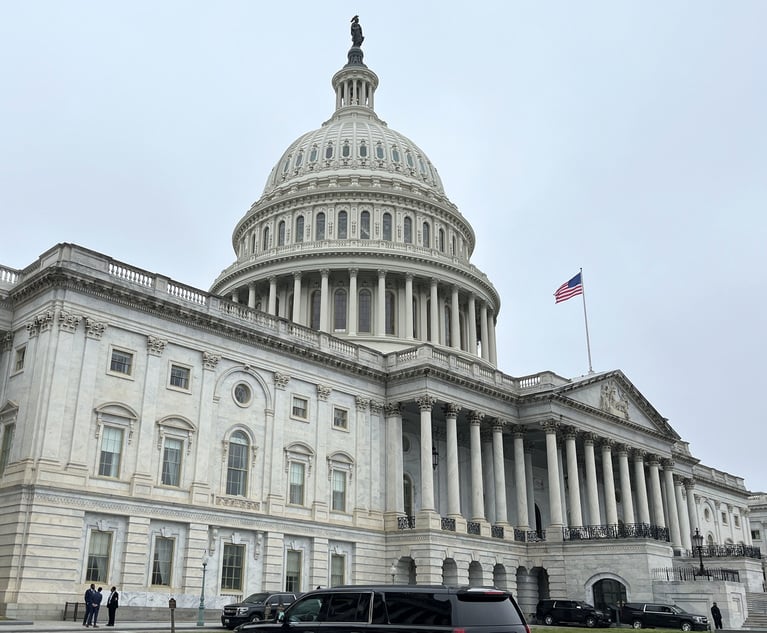“We do not have Obama judges or Trump judges, Bush judges or Clinton judges,” Chief Justice John Roberts declared last fall in response to President Trump’s jab at an “Obama judge.” In spite of my distaste for Trump’s attacks on our judiciary, on this one, the facts are with Trump.
As a former U.S. attorney and state attorney general, I have spent my share of time in the courtroom before state and federal judges whose commitment to neutral principles and fairness made even losing parties respect their decisions. Today, that confidence is undermined by the Roberts Court’s undeniable pattern of political allegiance. Under Roberts, justices appointed by Republican presidents have, with remarkable consistency, delivered rulings that advantage big corporate and special interests that are, in turn, the political lifeblood of the Republican Party. The “Roberts Five” are causing a crisis of credibility that is rippling through the entire judiciary.
Several decisions have been particularly flagrant and notorious: Citizens United v. FEC wrongly held that unlimited special-interest spending couldn’t corrupt, or even appear to corrupt, American politics, unleashing torrents of corruption and public disdain. Shelby County v. Holder wrongly declared racism over, disabling key sections of the Voting Rights Act and prompting a surge of racist state voting legislation. District of Columbia v. Heller elevated as constitutional doctrine a Second Amendment argument once described by a former chief justice as a “fraud.” After a bald invitation from a Republican appointee, right-wing lawyers rushed to lose cases in lower courts so a friendly Supreme Court majority could deliver a blow to the labor movement in Janus v. AFSCME.
Dig a bit, and a pattern emerges far worse than just that handful of bad decisions. Since Roberts ascended to chief justice in 2006, the court’s bare 5-4 majority of Republican appointees has delivered such rulings not three or four times, not even a dozen or two dozen times, but 73 times in civil cases. There are 79 5-4 decisions with no Democratic appointee joining the majority since Roberts became chief justice; and 73 of them implicate issues important to powerful Republican political interests. The score in those 73 cases for the big Republican interests is 73-0. On this Republican judicial romp, the Roberts Five have been cavalier with any doctrine, precedent or congressional finding that gets in their way.
The 73 decisions fall into four categories: First are decisions to help the Republican Party and its donors in politics, suppressing votes, buying influence, sowing fear, and gerrymandering. Second are decisions that make it harder for regulators and juries to hold corporations accountable. Powerful interests muscle their way around Congress; they hate uncaptured government regulators and courtrooms where they have to be equal before the law. Third are decisions to restrict civil rights and condone discrimination, reflecting the worldview that corporations know best, that courts have no business remedying historical discrimination and that views and experiences outside the white, male, Christian mainstream of the Republican Party merit lower legal standing. Fourth are decisions that have given straight-up political victories to the right-wing base on issues like abortion, guns and religion—achieving by judicial fiat what Republicans couldn’t accomplish through the legislative process.
The court’s so-called conservatives often abandon conservative judicial principles to reach the desired outcome. Republican appointees routinely assure senators at their confirmation hearings that they will simply “call balls and strikes,” and “follow the law of judicial precedent.” Yet doctrines about modesty, stare decisis and respect for the judgment of elected majorities evaporate in these cases. Even the pet doctrine of originalism is ignored when inconvenient. These decisions are only conservative in that they benefit powerful conservative interests.
The court’s campaign finance cases are a prime example of how the Roberts Five put results over doctrine. Four of these 13 cases—FEC v. Wisconsin Right to Life, Davis v. FEC, Citizens United v. FEC, and McCutcheon v. FEC—systemically decimated the Bipartisan Campaign Reform Act of 2002 (also known as McCain-Feingold) and powered up corporate spending in elections. An earlier challenge to McCain-Feingold, McConnell v. FEC, had upheld the law’s restrictions on soft money and issue ads, deferring largely to congressional findings. After that? A Republican rout.
What changed? Not the law or the facts, but the composition of the court: In 2006, Justice Samuel Alito replaced Justice Sandra Day O’Connor (the last Supreme Court justice to have any practical experience in elective politics). Out went the ban on issue ads (Wisconsin Right to Life), disclosure requirements for self-funding candidates (Davis), corporate spending (Citizens United), and aggregate contributions (McCutcheon). Along the way, the court, by bare partisan majorities, also knocked out two sensible state-level campaign finance laws (Arizona Free Enterprise Club v. Bennett and American Tradition Partnership v. Bullock).
These decisions showed no respect for precedent, federalism, originalism or judicial restraint. Citizens United even articulated a new standard that if a precedent is “hotly contested,” it has less precedential value—a sweet device for activist Republicans who can hotly contest and undermine precedents they don’t like.
The Roberts Court trampled its own procedures to get to its desired result. After all the oral arguments were heard, Roberts issued new questions presented, reframing the issue as a broad question about the ability of the government to regulate corporate spending on elections. This maneuver was radical, but it set up the question the conservatives wanted to answer, without a troublesome record to contend with. The five-member majority also ignored hundreds of thousands of pages of findings in the congressional record. As Justice John Paul Stevens wrote in dissent, “five justices were unhappy with the limited nature of the case before us, so they changed the case to give themselves an opportunity to change the law.” To change the law, the majority engaged in aberrant fact-finding—aberrant both because the facts weren’t factual, and because appellate courts aren’t supposed to do fact-finding in any event.
It’s not just campaign finance cases. It’s arbitration; class action; racial discrimination; guns. In 73 partisan, 5-4 decisions in the Roberts era with a major Republican interest at stake, the Republican political interest has won and conservative judicial principles have lost.
This pattern explains the mad scramble by right-wing interest groups to protect their conservative court majority. Republicans no longer hide that they have outsourced the judicial vetting process to interest groups coordinated by the Federalist Society political gatekeeper. The same few players select the nominees to our highest court, spend millions to campaign for their confirmation, and then fund amicus briefs signaling desired outcomes. And then they win, 73 times.
Much of this maneuvering remains hidden in the shadow of dark money, but it is an unmistakable pattern: 73 partisan 5-4 decisions delivering key Republican victories, every time.
Sen. Sheldon Whitehouse, D-RI, has been a member of the U.S. Senate since 2007.
NOT FOR REPRINT
© 2024 ALM Global, LLC, All Rights Reserved. Request academic re-use from www.copyright.com. All other uses, submit a request to [email protected]. For more information visit Asset & Logo Licensing.
NOT FOR REPRINT
© 2024 ALM Global, LLC, All Rights Reserved. Request academic re-use from www.copyright.com. All other uses, submit a request to [email protected]. For more information visit Asset & Logo Licensing.


 Sen. Sheldon Whitehouse, D-RI, during a Senate Judiciary Committee hearing on Feb. 13, 2019.
Sen. Sheldon Whitehouse, D-RI, during a Senate Judiciary Committee hearing on Feb. 13, 2019.





